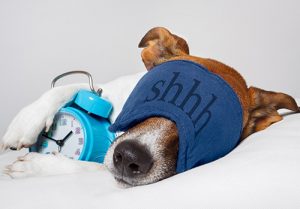
Image By Javier brosch
Sleep Tight!
Getting a good night’s sleep is sometimes easier said than done. With so many stressors and unhealthy distractions in this modern world, sleeping has become problematic for many. What a lot of people forget is that sleep is an integral part of the body’s ability to stay healthy and strong. If you are struggling to get a good night’s rest, there are few things you can try to help set yourself up for successful shuteye. Let’s dive in!
Sleeping Position
Raise your hand if you sleep on your stomach. How about your right side? Your left? You may not want to hear this, but here we go: frequently, the healthiest position to sleep in is actually flat on the back. I, sadly, have had to start training myself to sleep on my back as I have found myself waking up to sore, aching shoulders far too many times. Sleeping on your back allows for the even distribution of body weight across the largest surface area. This means you don’t have to switch from one side to the other all night because your arm fell asleep, a shoulder got pinched, or your neck felt uncomfortable. By sleeping on my side, I was unknowingly forcing myself to toss and turn throughout the night, compromising the restfulness of my sleep. Sleeping on your back may be a difficult adjustment, but if it will improve your sleep, then it’s worth trying! It can also reduce acid reflux, poor posture, help alleviate headaches, and clear up your skin, but those are topics for other articles…
Cortisol Rhythm
Dysregulation in our cortisol levels can lead to troubled sleep. Cortisol is meant to follow a 24-hour rhythm with levels falling to the lowest point around midnight and levels rising to the highest point around 8 am. This rhythm can be disturbed by many things including stress and interference in our body’s electrical system. Luckily, many of the factors that contribute to this can be corrected. Recently, I came across research that found earthing to be a huge help in regulating the body’s cortisol rhythm. Participants in the study saw dramatic results in cortisol regulation after just six weeks of sleeping grounded through earthing. Earthing can be achieved by spending time directly connected to the ground outside (skin to ground contact) or, like participants in the study, you can invest in an earthing mat to ground yourself indoors while you sleep.
Don’t Be Fooled
Alcohol is a tricky temptress when it comes to sleep. Many people use alcohol as a way to induce relaxation and fall asleep faster. However, despite feeling like you fall asleep faster with the help of alcohol, in reality, it disturbs the REM sleep cycle and the body’s ability to restore itself while dormant. Interestingly, you are likely to experience more sleep disturbances after consuming alcohol. If you are a side sleeper, you are also more likely to wake up sore because alcohol can keep your body from responding naturally to the discomfort brought about by unnatural sleeping positions. Overall, alcohol leaves you feeling sluggish the next day as your body was not able to reach a deep state, restorative sleep. Do yourself a favor and skip the nightcap!
Intentional Relaxation
Many times, the stress of the day disrupts the ability to relax the body and mind. This can make falling off into a restful sleep more difficult. By taking steps to actively engage our parasympathetic nervous system (the part of our nervous system that lets us feel relaxed and calm), we can help our body and mind settle down and prepare for rest. Three very effective sleep-prep strategies are yoga, meditation, and breathwork. Doing any one of these will help us slow down and intentionally engage our parasympathetic nervous system, which should help us drift off to sleep more easily.
Exercise and Sleep
Are you getting your daily dose of movement? If not, it may be time for you to start. Extensive research has shown that exercise greatly improves sleep quality. Those who exercise are more likely to fall asleep easily and less likely to experience insomnia. Exercise helps us reduce stress and release endorphins (feel-good hormones) in our bodies. Studies have also shown that aerobic exercise can have the same effect as generic sleeping pills. What’s more, it increases the amount of time your body spends in slow-wave deep sleep, leaving you feeling more refreshed and energized the next day. Consider adding exercise to your daily routine to help you sleep.
Sleep Takeaways
We need to actively work to prepare our bodies and minds for restful sleep each night. Pick one or two strategies to start with and perhaps build onto your habits from there. In summary: avoiding alcohol at night, exercising regularly, taking time to ground the body through earthing, intentionally practicing relaxation, and adjusting our sleeping position can all be powerful tools to give us restful restorative sleep, night after night. Sweet dreams!
Have Health Insurance Questions?
We hope that this information on sleeping tips is helpful for you.
Insurance is oftentimes overwhelming and we want to shed light on the industry by answering your questions. Comment below and your question may be the topic of our next post!
If you liked this article, share it with your friends!
Empower Brokerage wants to help you find the insurance coverage you need and how to save money getting it. Stay on top of your health and give us a call at (844) 410-1320.
Get affordable health insurance quotes by clicking here.
See our other websites:

